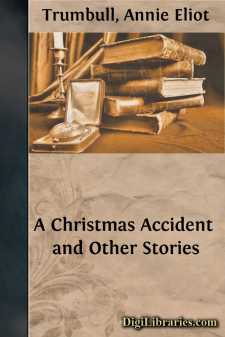Categories
- Antiques & Collectibles 13
- Architecture 36
- Art 48
- Bibles 22
- Biography & Autobiography 813
- Body, Mind & Spirit 142
- Business & Economics 28
- Children's Books 15
- Children's Fiction 12
- Computers 4
- Cooking 94
- Crafts & Hobbies 4
- Drama 346
- Education 46
- Family & Relationships 57
- Fiction 11828
- Games 19
- Gardening 17
- Health & Fitness 34
- History 1377
- House & Home 1
- Humor 147
- Juvenile Fiction 1873
- Juvenile Nonfiction 202
- Language Arts & Disciplines 88
- Law 16
- Literary Collections 686
- Literary Criticism 179
- Mathematics 13
- Medical 41
- Music 40
- Nature 179
- Non-Classifiable 1768
- Performing Arts 7
- Periodicals 1453
- Philosophy 64
- Photography 2
- Poetry 896
- Political Science 203
- Psychology 42
- Reference 154
- Religion 513
- Science 126
- Self-Help 84
- Social Science 81
- Sports & Recreation 34
- Study Aids 3
- Technology & Engineering 59
- Transportation 23
- Travel 463
- True Crime 29
A Christmas Accident and Other Stories
Categories:
Description:
Excerpt
AT first the two yards were as much alike as the two houses, each house being the exact copy of the other. They were just two of those little red brick dwellings that one is always seeing side by side in the outskirts of a city, and looking as if the occupants must be alike too. But these two families were quite different. Mr. Gilton, who lived in one, was a pretty cross sort of man, and was quite well-to-do, as cross people sometimes are. He and his wife lived alone, and they did not have much going out and coming in, either. Mrs. Gilton would have liked more of it, but she had given up thinking about it, for her husband had said so many times that it waswomen's tomfoolery to want to have people, whom you weren't anything to and who weren't anything to you, ringing your doorbell all the time and bothering around in your dining-room,—which of course it was; and she would have believed it if a woman ever did believe anything a man says a great many times.In the other house there were five children, and, as Mr. Gilton said, they made too large a family, and they ought to have gone somewhere else. Possibly they would have gone had it not been for the fence; but when Mr. Gilton put it up and Mr. Bilton told him it was three inches too far on his land, and Mr. Gilton said he could go to law about it, expressing the idea forcibly, Mr. Bilton was foolish enough to take his advice. The decision went against him, and a good deal of his money went with it, for it was a long, teasing lawsuit, and instead of being three inches of made ground it might have been three degrees of the Arctic Circle for the trouble there was in getting at it. So Mr. Bilton had to stay where he was.
It was then that the yards began to take on those little differences that soon grew to be very marked. Neither family would plant any vines because they would have been certain to heedlessly beautify the other side, and consequently the fence, in all its primitive boldness, stood out uncompromisingly, and the one or two little bits of trees grew carefully on the farther side of the enclosure so as not to be mixed up in the trouble at all. But Mr. Gilton's grass was cut smoothly by the man who made the fires, while Mr. Bilton only found a chance to cut his himself once in two weeks. Then, by and by, Mr. Gilton bought a red garden bench and put it under the tree that was nearest to the fence. No one ever went out and sat on it, to be sure, but to the Bilton children it represented the visible flush of prosperity. Particularly was Cora Cordelia wont to peer through the fence and gaze upon that red bench, thinking it a charming place in which to play house, ignorant of the fact that much of the red paint would have come off on her back. Cora Cordelia was the youngest of the five. All the rest had very simple names,—John, Walter, Fanny, and Susan,—but when it came to Cora Cordelia, luxuries were beginning to get very scarce in the Bilton family, and Mrs. Bilton felt that she must make up for it by being lavish, in one direction or another. She had wished to name Fanny, Cora, and Susan, Cordelia, but she had yielded to her husband, and called one after his mother and one after herself, and then gave both her favorite names to the youngest of all. Cora Cordelia was a pretty little girl, prettier even than both her names put together.
After the red bench came a quicksilver ball, that was put in the middle of the yard and reflected all the glory of its owner, albeit in a somewhat distorted form. This effort of human ingenuity filled the Bilton children with admiration bordering on awe; Cora Cordelia spent hours gazing at it, until called in and reproved by her mother for admiring so much things she could not afford to have. After this, she only admired it covertly.
Small distinctions like these barbed the arrows of contrast and comparison and kept the disadvantages of neighborhood ever present.
Then, it was a constant annoyance to have their surnames so much alike....


